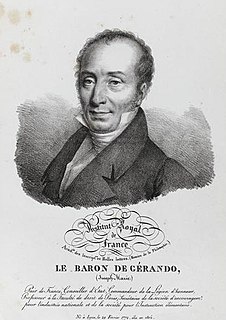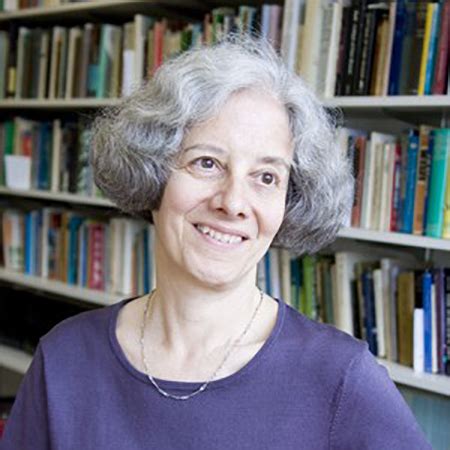A Quote by Bertrand Russell
The really useful education is that which follows the direction of the child's own instinctive interests, supplying knowledge for which it is seeking, not dry, detailed information wholly out of relation to its spontaneous desires.
Related Quotes
Data isn't information. ... Information, unlike data, is useful. While there's a gulf between data and information, there's a wide ocean between information and knowledge. What turns the gears in our brains isn't information, but ideas, inventions, and inspiration. Knowledge-not information-implies understanding. And beyond knowledge lies what we should be seeking: wisdom.
We do not merely give a religious education because that would seem to imply the possibility of some other education, a secular education, for example. But we hold that all education is divine, that every good gift of knowledge and insight comes from above, that the Lord the Holy Spirit is the supreme educator of mankind, and that the culmination of all education (which may at the same time be reached by a little child) is that personal knowledge of and intimacy with God in which our being finds its fullest perfection.
There are branches of learning and education which we must study merely with a view to leisure spent in intellectual activity, and these are to be valued for their own sake; whereas those kinds of knowledge which are useful in business are to be deemed necessary, and exist for the sake of other things.
Industrial Society is not merely one containing 'industry,' large-scale productive units capable of supplying man's material needs in a way which can eliminate poverty: it is also a society in which knowledge plays a part wholly different from that which it played in earlier social forms, and which indeed possesses a quite different type of knowledge. Modern science is inconceivable outside an industrial society: but modern industrial society is equally inconceivable without modern science. Roughly, science is the mode of cognition of industrial society, and industry is the ecology of science.
Philosophers have very justly remarked that the only solid instruction is that which the pupil brings from his own depths; that the true instruction is not that which transmits notions wholly formed, but that which renders him capable of forming for himself good opinions. That which they have said in regard to the intellectual faculties applies equally to the moral faculties. There is for the soul a spontaneous culture, on which depends all the real progress in perfection.
Sex is difficult, yes. But they are difficult things with which we have been charged...If you only recognize this and manage out of yourself, out of your own nature and ways, out of your own experience and childhood and strength to achieve a relation to sex wholly your own (not influenced by convention and custom) then you need no longer be afraid of losing yourself and becoming unworthy of your best possession.
In my early life, and probably even today, it is not sufficiently understood that a child's education should include at least a rudimentary grasp of religion, sex, and money. Without a basic knowledge of these three primary facts in a normal human being's life --subjects which stir the emotions, create events and opportunities, and if they do not wholly decide must greatly influence an individual's personality --no human being's education can have a safe foundation.
The art of natural education consists in ignoring the faults of children nine times out of ten, in avoiding immediate interference, which is usually a mistake, and devoting one's whole vigilance to the control of the environment in which the child is growing up, to watching the education which is allowed to go on by itself.
Parents ought, through their own behavior and the values by which they live, to provide direction for their children. But they need to rid themselves of the idea that there are surefire methods which, when well applied, will produce certain predictable results. Whatever we do with and for our children ought to flow from our understanding of and our feelings for the particular situation and the relation we wish to exist between us and our child.
What I've learned about teaching is to refer back to the root of that word, which is educo, which means "to pull from." Education does not mean jamming information into somebody's head. Rather, it's that ancient idea that all knowledge is within us; to teach is to help somebody pull it out of themselves.
It can be tempting to blame others for our loss of direction. We get lots of information about life but little education in life from parents, teachers, and other authority figures who should know better from their experience. Information is about facts. Education is about wisdom and the knowledge of how to love and survive.
We have heard of a Society for the Diffusion of Useful Knowledge. It is said that knowledge is power, and the like. Methinks there is equal need of a Society for the Diffusion of Useful Ignorance, what we will call Beautiful Knowledge, a knowledge useful in a higher sense: for what is most of our boasted so-called knowledge but a conceit that we know something, which robs us of the advantage of our actual ignorance? What we call knowledge is often our positive ignorance; ignorance our negative knowledge.
The reason we can't attain the highest level of knowledge while incarnate is that we can't then wholly escape the influence of the body (and so of perception and of certain desires that take us away from thinking properly); and that prevents us from understanding fully what forms are, which one must do in order to have the highest level of knowledge.



































